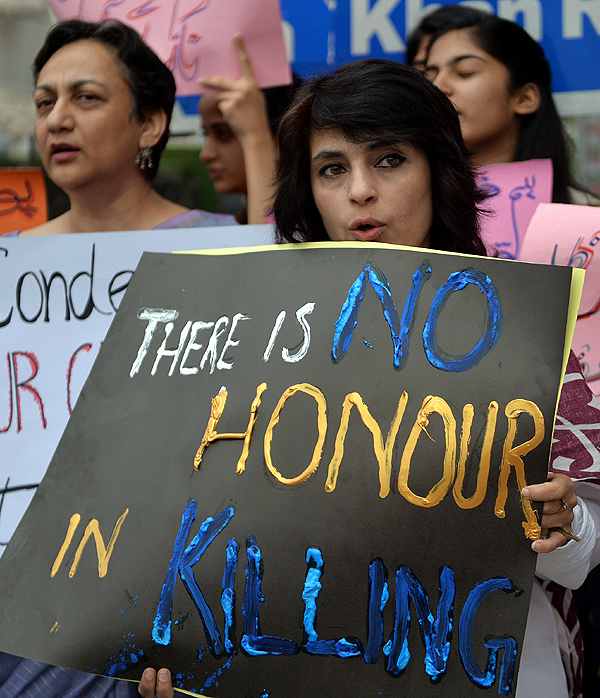A structural failing of the Criminal Justice System
Friday, November 11th, 2011 6:08:52 by Momina Khan
A structural failing of the Criminal Justice System
Pakistan is the world’s third-most dangerous country for women, after Afghanistan and the Democratic Republic of Congo, based on a survey conducted by the Thomson Reuters Foundation.
In its 2010 report, the Human Rights Commission of Pakistan says almost 800 women were victims of “honour killings” — murders aimed at preserving the honour of male relatives and 2,900 women reported raped which amounts to almost
eight a day.
The majority of the women (which is almost 2,600) were raped in Punjab alone, which is Pakistan’s most populous province and the numbers are rising: media reports that crimes against women have risen 18 per cent in the year and
the Human Rights Commission believes its figures represent only a fraction of the attacks which take place across the country.
In rural areas, women are often shut out of the justice system, which is compromised by powerful landowners and feudal lords who dominate a hierarchy that makes it difficult and deadly for those with little education or social
standing to speak up.
Families or tribes then often take justice in their own hands, presiding over “jirgas” or “panchayats” — gatherings of elders that hand down punishments that include rape, killing or barter of women for crimes that include falling
in love with a man deemed inappropriate or besmirching family honour, while , some women are maimed just to settle scores.
Members of the panchayat systems say the tradition is hard to shake because it is entrenched in the local culture and also because it is much more efficient than the regular courts.
The slightest transgression by a woman; being seen talking to a man on the street, perhaps, or having an unknown phone number in a mobile can bring harsh punishment and social ostracism of the family.
Many women are unable to speak out because they lack the support and education to understand their rights but even those who dare often get nowhere.
The most high profile instance of a violent ruling by a tribal court against a woman is that of the gang rape of Mukhtaran Mai, which took place near Multan in 2002.
Mai was allegedly attacked to settle a matter of village honour, as decided by a panchayat. She was then paraded naked through her village. Unlike most rape victims, who face stark recriminations for speaking out, and who are sometimes
even expected to commit suicide, she filed a criminal case against 14 men.
Six men were convicted and sentenced to death that year, but in 2005 the Lahore High Court commuted one sentence to life in prison and acquitted the rest.
Pakistan’s Supreme Court upheld that decision in April this year, in what rights activists said was a crushing blow to women’s and minority rights in Pakistan. The men were released days later and Mai said she is afraid they will
return and kill her.
In another incident that took place on the 14th of April this year, two men entered Asma Firdous’ home, cut off six of her fingers, slashed her arms and lips and then sliced off her nose. Before leaving the house, the
men locked their 28-year-old victim inside.
Asma, from impoverished Kohaur Junobi village in Pakistan’s south, was mutilated because her husband was involved in a dispute with his relatives, and they wanted revenge.
Her fate is familiar in parts of Pakistan’s remote and feudal agricultural belts, where women are often used as bargaining chips in family feuds, and where the level of violence they face is increasing in frequency and brutality.
At the hospital in nearby Multan town, Asma’s shocked parents sat quietly by her bedside and struggled to explain what the future holds for their now disfigured daughter.
“I don’t know what will happen to her when she leaves here,” Asma’s father, Ghulam Mustafa, said, in a dilapidated ward heavy with the smell of antiseptic and blood, where other women, doused with acid or kerosene by relatives
or fellow villagers, awaiting an equally uncertain future.
Asked if Asma will return to her husband, her father remains silent and so does the criminal justice system.
Tags: Afghanistan, Democratic Republic of Congo, FATA, Human Rights Commission, jirgas, Kohaur Junobi, Mukhtaran Mai, Multan, panchayats, punjab, Tribal AreasShort URL: https://www.newspakistan.pk/?p=3225

















